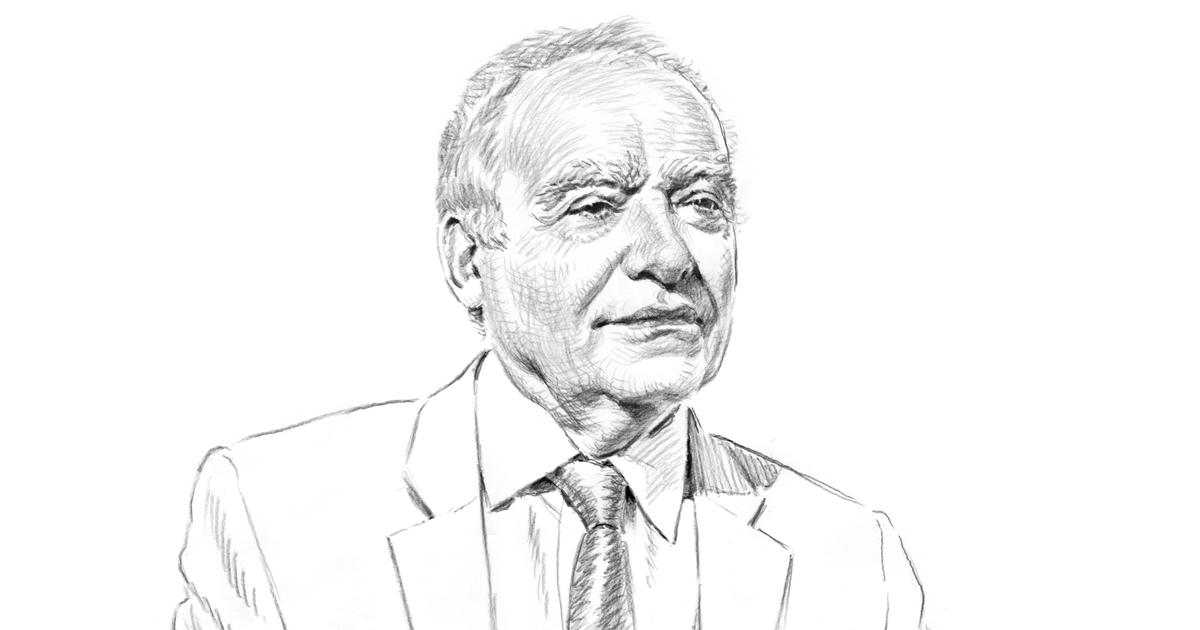All about the life of Woodrow Wilson.
Woodrow Wilson
was a
doctor of history
who won the election as
governor of New Jersey
as a career changer
.
From 1913 to 1921, the
Democratic politician was
the
28th President of the United States.
During his tenure, the
Nobel Peace Prize laureate
intervened
in the
First World War
and played a key role in the peace agreement.
Thomas Woodrow Wilson
(12/28/1856, 1924) was an
American Democrat
who led the fortunes of the
United States of America for
two terms
.
Under his leadership, the United States entered the
First World War
.
At the same time he played an important role in the subsequent
peace conference
.
In the same year
Woodrow Wilson received
the Nobel Peace Prize.
To this day, scientists are controversial about his attitude towards Germany.
Woodrow Wilson died just three years after the end of his presidency.
His final resting place is the
National Cathedral in Washington DC
.
- The Washington National Cathedral
located at 3101 Wisconsin Avenue in Washington DC -
Woodrow Wilson's Origin, Family, and Studies
Thomas Woodrow Wilson
comes from Staunton, Virginia and grew up as one of four children.
His parents were of American and British descent.
Since 1851 the parents lived in the
southern states
.
There they were Confederate sympathizers.
Woodrow Wilson's father was a pastor of the Presbyterian Church and an
advocate of
slavery
.
He kept his own slaves himself.
Coming from a good family, he attended various
private schools
in his youth
.
At
Princeton University
he studied, then he went to the
University of Virginia
to
law
study.
During a law internship, however, he decided to become a teacher.
As a result, he moved to
Johns Hopkins University
(https://www.jhu.edu)
in 1883 to
study
history and political science
.
The
historian received
his doctorate in 1886 and taught at a secondary school for girls in the following years.
Woodrow Wilson married his
first wife Ellen Wilson
(May 15, 1860, 1914)
at this time
.
Until her death, she was at his side as First Lady in the White House in Washington for a year.
A year after her death, Woodrow Wilson married the
widow Edith White Bolling Galt Wilson
(October 15, 1872, 1961).
Political career and governor of New Jersey
Woodrow Wilson's
political interest
began during his academic career.
As university president, he advised
black Americans
not to apply for a place there.
In other books and scholarly papers, Woodrow Wilson spoke negatively about Americans of color and expressed understanding of
racial discrimination
.
As
a member of the Democratic Party
, he decided in 1910 to run for
governor
of New Jersey.
Woodrow Wilson won the election by about fifty thousand votes and was subsequently governor.
As a
political career changer
without previous political office, he was well received by voters.
During the election campaign, he promised to govern independently of party structures and power struggles.
He stuck to this during his time as governor.
For example, he promoted some
reforms in New Jersey
that were not very popular in the Democratic Party.
The Democratic party leadership saw Woodrow Wilson increasingly skeptical.
The latter did not adhere to the party-political reasoning and decided at his own discretion.
Nonetheless, Woodrow Wilson enjoyed growing popularity among American electorate.
So he got talking about an upcoming presidential candidacy.
Woodrow Wilson as US President
Before the
1912 presidential election
,
Woodrow Wilson was
a candidate for the Democratic Party.
In a duel between the
Speaker of the House of Representatives Champ Clark
(03/07/1850, 1921) Woodrow Wilson prevailed.
At first, Clark always had a clear lead, but could not achieve the required two-thirds majority.
With the support of an influential Democrat, Woodrow Wilson won the
nomination
in the 46th ballot
.
In the 1912 presidential election, he benefited from the split in the Republicans.
With a
share of the vote of 41.8%
, he clearly won the presidential election.
He received electoral votes from forty states.
The other two candidates stood no chance against the Democrat and PhD historian.
During his tenure, Woodrow Wilson suffered a
stroke in
1919
that
paralyzed him on one side
.
Nevertheless, he continued his official business.
In 1921 a republican successor took office.
Just a few years later, Woodrow Wilson died at the age of 67.
Racial Policy under Woodrow Wilson
The
historian Woodrow Wilson has
often disparaged blacks in the course of his academic career.
During his presidency, he supported the southern states of the USA in maintaining the current franchise.
This disadvantaged the black citizens in the respective state.
As US President, he preferred white politicians from the southern states for the allocation of political offices.
Wilson reintroduced
racial segregation
in the federal agencies and the military
.
He fired most of the black politicians in leading positions; there were also partition walls in the offices and separate toilets for black employees.
Known for his
racist jokes
about black people, he was a
proponent of segregation
.
In retrospect, historians refer to former President of the United States Woodrow Wilson as both a
moderate southern politician
and one of the most
racist US presidents of all time
.
Entry into the First World War and attitude to Germany
First, put
Woodrow Wilson
during World War I to a
policy of neutrality
.
With the policy of neutrality, he was able to win over large parts of the population and was
re-elected
in 1916
.
After
public opinion about the war
in Europe changed, the USA intervened
in the
First World War
in
1917
.
After an armistice was agreed, Woodrow Wilson negotiated the
Versailles Treaty
in the Council of Four
.
The center of the negotiated peace should be its
14-point program
.
This included the following points, among others:
Public peace treaties with no secret agreements
Freedom of navigation in international waters
Removing economic barriers and establishing freedom of trade
Disarmament to the lowest level
Evacuation of Russia, Belgium and France
Foundation of an association of nations (League of Nations)
Woodrow Wilson's stance on Germany
is still part of scientific controversy.
As an academic historian, Woodrow Wilson was rather positive about Germany.
He especially admired the
Reich President Otto von Bismarck
.
Over the years, however, his image of Germany changed, even if he rather neglected the development of European politics.
At least at the end of 1914 he pointed out that Germany was not solely to blame for the First World War.
Nevertheless, he was in favor of a fundamental change in the German government.
In the course of the war, Wilson's attitude towards Germany changed.
This now wanted to punish the German population for the First World War.
This went so far that at the Treaty of Versailles he said to the British Prime Minister that he
had always detested Germany
.
Honors for Woodrow Wilson and Nobel Peace Prize
In 1919
Woodrow Wilson received
the
Nobel Peace Prize
.
This award was dedicated to his
services
at the end of the
First World War
and the establishment of the League of Nations.
Today there are numerous buildings and squares that are named after the former US President Woodrow Wilson.
His image is also on the
US $ 100,000 banknote
.
This is an official currency in the USA, although it was never in circulation.
In Alabama there is the
Wilson Dam
, while in South Georgia there is
Cape Wilson
.
There are also countless
schools
named Woodrow Wilson
across America
.
However, there are regular
protests
against the naming, as African-American Americans in particular remind of Woodrow Wilson's racist attitude.







/cloudfront-eu-central-1.images.arcpublishing.com/prisa/5PR77BORQJFIRKEY7T3SZLHP4A.jpg)
